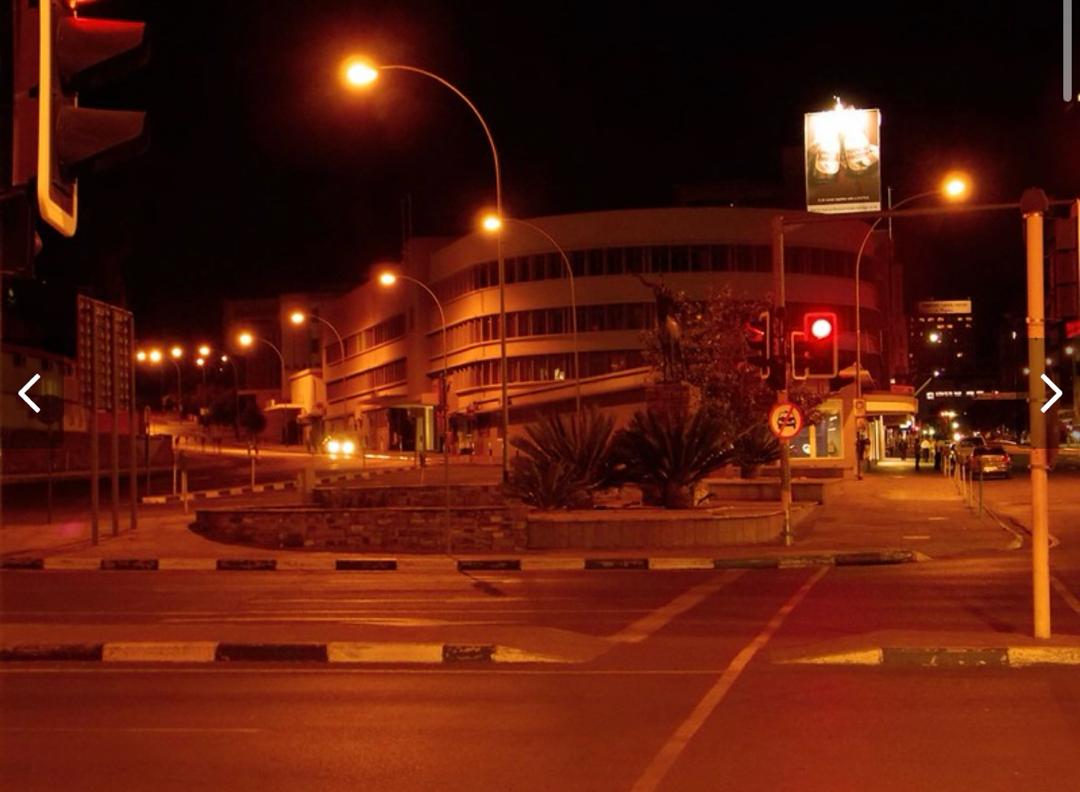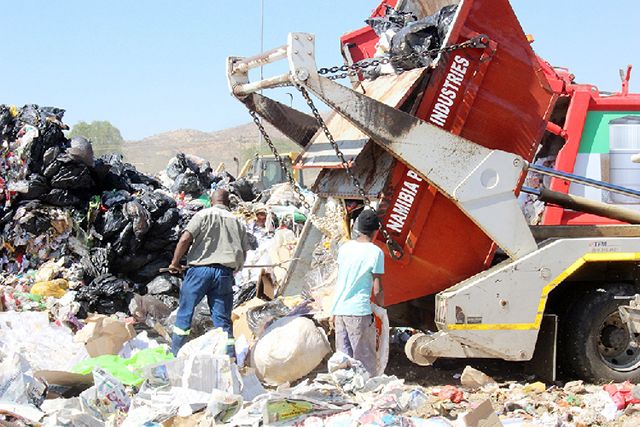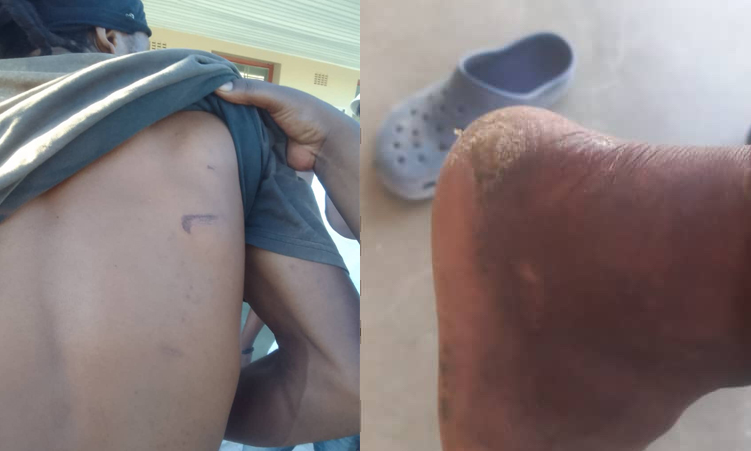THE Namib Times lost a defamation lawsuit brought by Walvis Bay Municipal employee Johanna Shidute and Walvis Bay legal practitioner Gert van Rooyen in the High Court last week.
The coastal newspaper’s publisher, DDJ Investment Holdings, and its editor, Floris Steenkamp, have to pay Shidute N$100 000 and Van Rooyen N$30 000 in damages in terms of the judgement handed by Acting Judge John Manyarara. This is believed to be the biggest defamation judgement yet against a Namibian newspaper.The highest previous judgement was in 1994 against the Akasia Nuus newspaper at Rehoboth, in which it had to pay the late Dr Ben Africa damages of N$30 000.The judgement given against the Namib Times stemmed from an article published on the front page of the newspaper on December 2 2005.In the article it was alleged that Shidute, the Assistant Controller of Credit Control at the Municipality, was one of several municipal employees who were suspected of owing the Municipality large amounts in unpaid water and electricity bills.It claimed that Shidute “apparently paid the accounts for August and September [2005] a month late.Both accounts amounted to over N$1 000 per month”.Shidute charged that the article had damaged her good name.The newspaper denied the charge of defamation on the grounds of “truth and the public interest”.During the hearing of the case in the High Court, Steenkamp testified that the article was written after he had been handed a document, which was assumed to be an extract from municipal records, and which indicated that Shidute had paid her accounts late.After the article was published, it was proved upon inspection of her municipal accounts that she had actually paid her accounts in advance, the court was informed.Shidute called the editor and requested that her side of the story be published, which he allegedly refused.She took exception, and consulted Van Rooyen for legal action.Van Rooyen had a letter delivered to the newspaper three days after the publication of the article, requesting the editor to publish the letter and apologise to his client.The letter drew attention to the alleged untruthfulness of the article, the fact that the newspaper allegedly did not bother to verify the truth of the information, and that the editor had allegedly refused to publish Shidute’s version when requested.The letter was published two weeks later, on page four, alongside a comment by the editor.The comment read that the editor remained of the opinion that Shidute’s account had been paid late several times, while comments were also made about Van Rooyen’s “moral duty as legal practitioner to conclude cases in an expedient and cost-effective manner” and “premature legal correspondence” on behalf of Shidute.Steenkamp added that he had valid reasons for not responding to Shidute’s demand for an apology until the municipality reached a conclusion on the alleged misconduct that took place.He said the newspaper would not hesitate to retract the article if Shidute was found innocent.According to Acting Judge Manyarara, the newspaper’s allegations were untrue, and therefore unfair, hence could not have any public interest.Acting Judge Manyarara said the article “unleashed a brazen but unsubstantiated attack, underpinned by undisguised cynicism” on Van Rooyen, describing this as defamatory.Acting Judge Manyarara found that the words used about Shidute and Van Rooyen attributed them with “dishonesty, lack of moral fibre and corrupt, unethical and questionable conduct”, and that the article impaired their professional reputations.He added that “the defendants expressed no remorse for the untruths even when these were clearly indicated for them to realise and reconsider their position”.The Acting Judge said he could see no reason for reducing Shidute’s claim, while Van Rooyen’s claim was “quite modest”.Steenkamp told The Namibian that he would appeal the matter in the Supreme Court.This is believed to be the biggest defamation judgement yet against a Namibian newspaper.The highest previous judgement was in 1994 against the Akasia Nuus newspaper at Rehoboth, in which it had to pay the late Dr Ben Africa damages of N$30 000.The judgement given against the Namib Times stemmed from an article published on the front page of the newspaper on December 2 2005.In the article it was alleged that Shidute, the Assistant Controller of Credit Control at the Municipality, was one of several municipal employees who were suspected of owing the Municipality large amounts in unpaid water and electricity bills.It claimed that Shidute “apparently paid the accounts for August and September [2005] a month late.Both accounts amounted to over N$1 000 per month”.Shidute charged that the article had damaged her good name.The newspaper denied the charge of defamation on the grounds of “truth and the public interest”.During the hearing of the case in the High Court, Steenkamp testified that the article was written after he had been handed a document, which was assumed to be an extract from municipal records, and which indicated that Shidute had paid her accounts late.After the article was published, it was proved upon inspection of her municipal accounts that she had actually paid her accounts in advance, the court was informed.Shidute called the editor and requested that her side of the story be published, which he allegedly refused.She took exception, and consulted Van Rooyen for legal action.Van Rooyen had a letter delivered to the newspaper three days after the publication of the article, requesting the editor to publish the letter and apologise to his client.The letter drew attention to the alleged untruthfulness of the article, the fact that the newspaper allegedly did not bother to verify the truth of the information, and that the editor had allegedly refused to publish Shidute’s version when requested.The letter was published two weeks later, on page four, alongside a comment by the editor.The comment read that the editor remained of the opinion that Shidute’s account had been paid late several times, while comments were also made about Van Rooyen’s “moral duty as legal practitioner to conclude cases in an expedient and cost-effective manner” and “premature legal correspondence” on behalf of Shidute.Steenkamp added that he had valid reasons for not responding to Shidute’s demand for an apology until the municipality reached a conclusion on the alleged misconduct that took place.He said the newspaper would not hesitate to retract the article if Shidute was found innocent.According to Acting Judge Manyarara, the newspaper’s allegations were untrue, and therefore unfair, hence could not have any public interest.Acting Judge Manyarara said the article “unleashed a brazen but unsubstantiated attack, underpinned by undisguised cynicism” on Van Rooyen, describing this as defamatory.Acting Judge Manyarara found that the words used about Shidute and Van Rooyen attributed them with “dishonesty, lack of moral fibre and corrupt, unethical and questionable conduct”, and that the article impaired their professional reputations.He added that “the defendants expressed no remorse for the untruths even when these were clearly indicated for them to realise and reconsider their position”.The Acting Judge said he could see no reason for reducing Shidute’s claim, while Van Rooyen’s claim was “quite modest”.Steenkamp told The Namibian that he would appeal the matter in the Supreme Court.
Stay informed with The Namibian – your source for credible journalism. Get in-depth reporting and opinions for
only N$85 a month. Invest in journalism, invest in democracy –
Subscribe Now!










